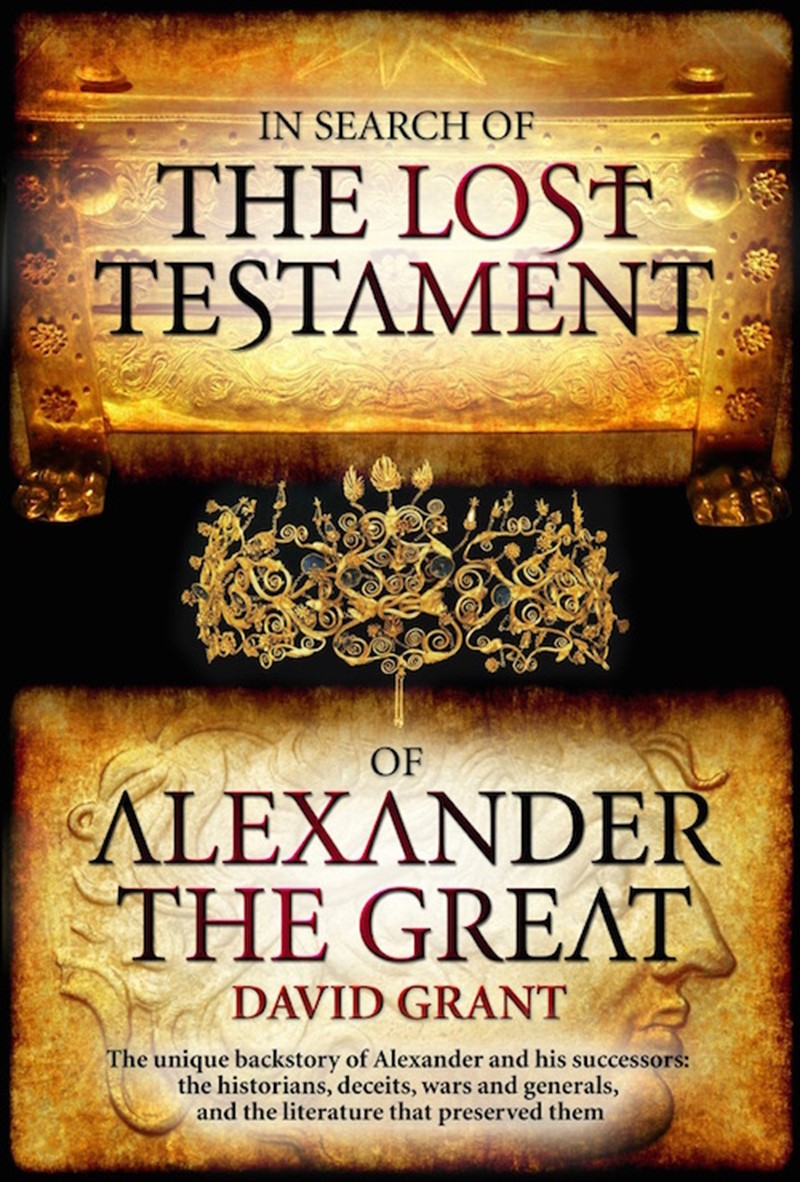
Babylon, mid-June 323 BCE:
wracked by fever and having barely survived another night, King Alexander III,
the rule of Macedonia for 12 years and 7 months, had his senior officers
congregate at his bedside where he finally acknowledged he was dying. Some
2,340 years after Alexander The Great’s death, five barely intact accounts
survive to tell a hardly coherent story. At times in close accord, though more
often contradictory, they conclude with a melee of death-scene rehashes, all of
them suspicious: the first portrayed Alexander dying silent and intestate; he
was Homeric and vocal in the second; the third detailed his Last Will and
Testament though it is attached to the stuff of romance. Which account, if any,
do we trust?
In Search Of The Lost
Testament Of Alexander The Great by David Grant is the result of a decade of
contemplations and painstaking academic research on Alexander presented as a
rich thematic narrative. Taking an uncompromising investigative perspective,
Grant delves into the challenges faced by Alexander's unique tale — the
forgeries and biased historians, the influences of rhetoric, romance,
philosophy and religion on what was written and how. Alexander's own mercurial
personality is vividly dissected, and the careers and wars of his successors
are presented with a unique eye. But the book never loses sight of central aim:
to unravel the mystery behind Alexander's unconvincingly reported death. Out of
Grant's research emerges one unavoidable verdict that, after 2,340 years, the
Last Will and Testament of Alexander III of Macedonia needs to be removed from
the realm of romance and reinstated to its rightful place in mainstream
history.
“After reading the available texts
on Alexander, both the ancient testimony and modern reconstructions, I was
dissatisfied with conclusions drawn to date, and suspicious of an opacity that
ought to have been black and white,” explains Grant. “Historians have created
what I term the ‘standard model’ of Alexander, especially regarding his death,
and I set out to challenge that.”
In Search Of The Lost
Testament Of Alexander The Great is written in an entertaining and engaging
style that opens the subject to both scholars and the casual reader of history
looking to learn more about the Macedonian king and the men who made his story.
It concludes with a wholly new interpretation of the death of Alexander the
Great and the mechanism behind the wars of succession that followed.
Note: David Grant has a Masters Degree in ancient history and wrote his thesis on Alexander The Great. He is responsible for a number of international patents stemming from ideas that set out to challenge the status quo in one way or another, life experience which gave him his tenets: always challenge accepted norms, the past is never dead, and believe what you read at your peril. Unsurprisingly, he set out to question and contest the ‘standard model’ (as he puts it) of the Macedonian king. The result is In Search of the Lost Testament of Alexander The Great. Grant now resides in London and is embarking upon his next book about Alexander’s campaigns in the Persian Empire. He is fortunate enough to be in contact with the anthropologist who heads the osteoarchaeological research at the tomb sites in ancient Macedonia, the results of which are providing unique insight into their occupants, who may well include the family of Alexander the Great.
In Search of the Lost Testament of Alexander the Great
is available on Amazon.
For more information, visit www.AlexandersTestament.com and connect with the author on Facebook, Twitter, and Goodreads


